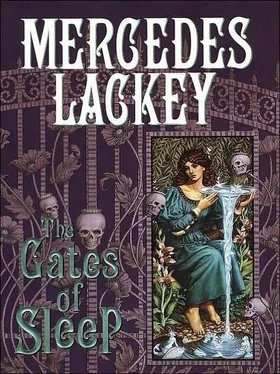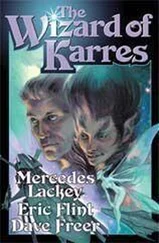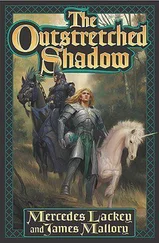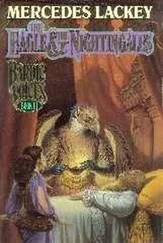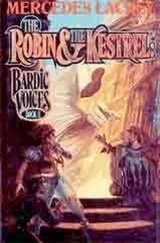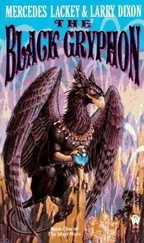Well, here there were quiet, well-appointed rooms, simple but delicious food, grounds where one could walk, lanes where one could drive, and no one would bother you with invitations, decisions, noise, bustle, or anything else until you were rested. A week, a month, and you were ready to go back to the social whirl.
And no one acted as if your problems were so insignificant that you should feel ashamed of your weakness. And if Andrew’s establishment was doing no more than providing a kind of country spa rather than real treatment for serious problems for these women, well, why not? Why shouldn’t he have the benefit of their money?
If, however, there was a serious problem, unlike a spa or other fashionable resort, Andrew was going to spot it, and at least attempt to treat it.
So he and Eleanor completely bypassed one wing of guest rooms that had been converted into patient rooms. The ladies housed there had no need of him or his services; they were quite satisfied to see him once a day, just after a late breakfast.
He did stop at several other rooms, though. Three were cases of real depression, and aside from seeing that they got a great deal of sunlight (which seemed to help), and slowly, slowly seeing what healing magic might do, there wasn’t a lot that seemed to make a difference to them.
At least he wasn’t dousing them with cold water baths six times a day, or tying them to beds and force-feeding them, or throw them into those horrors called general wards.
There were four cases of feeble-mindedness, one of who could barely feed himself. Two unfortunates who had fallen from heights onto their heads, who were in similar case. One old demented woman. All of these could have been warehoused anywhere, but at least they had family who cared that they were treated decently, kept clean, warm, and well-fed, and that no one abused them. For this, they paid very well indeed, and Dr. Pike was very grateful.
And he had one poor soul who really was hearing voices in his head that didn’t exist, not on any plane. He didn’t know what to do with that fellow; nothing he tried seemed to work. There was something wrong in the brain, but what? And how was he to fix it, even if he could discover what was wrong?
That man, though he had never shown any inclination to violence, was locked in a room in which the bed and chair were too heavy to move, and in any case, bolted to the floor so that he couldn’t use them to break the window. There was an ornamental iron grate bolted over the window on the inside. And the poor man was never allowed a candle or an open fire; there was a cast-iron American stove in the fireplace in his room, and Andrew could only hope that the voices in his head would never tell him to try to open it with his bare hands.
He was the last visit this afternoon; all was well, and Andrew heaved a sigh of relief as he always did.
“Have your tea, Eleanor,” he told her. “I’m going to go help Diana Gorden with her shields.”
She smiled faintly. “Very well, Doctor. Don’t forget to eat, yourself.”
“I won’t,” he promised.
And of course, promptly did.
Chapter Fifteen
MARINA stared at the four small objects in the palm of her hand; there was no confusion about what she was seeing, as sunlight flooded the room. In her hand lay what were supposed to have been four ha’pennies that she had just poured out of the vase. Well, she’d thought they were ha’pennies last night when she’d put them in the vase.
But when she’d tilted them out this morning, it was painfully clear that they were nothing of the sort. They were, in fact, four “good conduct” medals of the sort given out at Sunday School, sans ribbon and pin. They were copper, they did feature the Queen’s profile, and they were the size of a ha’pence. But not even the kindest-hearted postmaster was going to exchange these for a stamp.
I must have been more tired than I thought. I just looked at these things last night, saw the Queen’s head, and thought they were coins. Or maybe it was just that I was working by the light of one candle. Oh, conkers. I’m back where I started.
She sighed. She’d have wept, except that with Madam and Reggie still gone, she had plenty of things to leaven her disappointment. She had a real breakfast, Miss Mary Anne had been told that in absence of any tasks that Madam had left for Marina to do (there were none, since Madam had left in such a hurry) Marina was going out to ride this morning and this afternoon.
Mary Anne sullenly attired her in her riding habit and left, ostensibly on some other task that she had been assigned. In reality since no one seemed to have authority over Mary Anne but Madam, that was unlikely. Marina strongly suspected that the girl would be back here to snoop as soon as her putative mistress was gone, though. She’d probably go through every bit of Marina’s belongings while she had the chance.
Well, I’d better dispose of these… She put them in the very bottom of her jewel case. If Mary Anne found them, she would assume that they were further evidence of Marina’s faithful church-going, which was all to the good; church activities were high on the list of appropriate things for young ladies of even the highest ranks to do.
A quick note on menu-paper to the cook took care of luncheon, tea and dinner, and Marina was out into the cold, flinging her cloak over her shoulders, her hat pinned jauntily on her head at an angle that was quite out of keeping with one in mourning.
This time, instead of placid old Brownie, Marina asked the groom to saddle the iron-mouthed hunter Reggie usually rode, an extremely tall gelding named Beau. She had a notion that he was all right, despite Reggie’s assertions that “he’s a rum ‘un,” and to make sure she started off on the best of terms with him, she brought a bread crust smeared in jam from breakfast. He laid back his ears when he saw the groom approaching with the saddle, but pricked them forward again when it was Marina, not Reggie, who approached.
She held out the crust, which he sniffed at, then engulfed with good appetite, using lips more than teeth. That was a good sign. As he chewed it, she ventured to scratch his nose. He closed his eyes and leaned into the caress, then made no fuss about being saddled and bridled. He stood steady as a rock beside the mounting-block (he was so tall she needed to use one) and then stepped out smartly when she barely nudged him with a heel. She hadn’t even got halfway down the drive before figuring out that although his mouth was insensitive, he neck-reined beautifully. And his manners were impeccable.
“Well, you’re just every inch the gentleman, aren’t you?” she asked, as his ears swiveled back to catch what she said. He snorted, quite as if he understood her, and bobbed his head.
He had a silken fast walk, and because his legs were so long, a surprisingly comfortable trot. No odds that’s why Reggie bagged him, she thought. I ought to see if I could teach him to “bounce” on his trot; that’d serve Reggie right.
Ah, but Reggie would probably just take it out on the horse, which wouldn’t be fair to Beau.
She had a particular goal in mind for this morning, while Madam was still away; she had gotten Sally to tell her the way to Briareley, and she was not going to wait for Dr. Pike to decide whether or not he was going to contact her at the vicarage. She was going to come to him. This would probably be her only opportunity to go to Briareley ever; Madam might be back this very afternoon, and would never permit Marina to make such a visit. It would be highly improper—they hadn’t been introduced, Briareley was no longer a place where one might ask for a tour of the house, she should not be visiting a man unescorted. The notion of paying a visit to a sanitarium where there were madmen—well, a daring young man might well pull such a thing off on a lark, but no woman would even consider such a thing. Marina was breaking all manner of social rules by doing this.
Читать дальше
